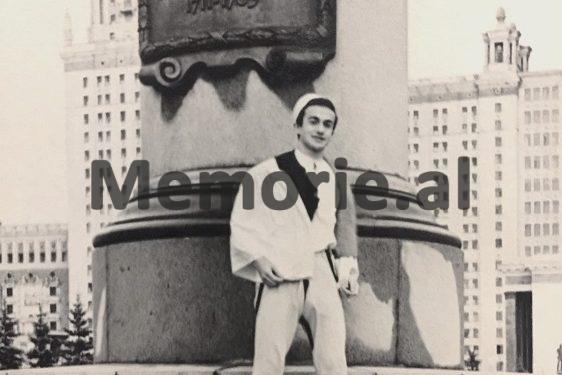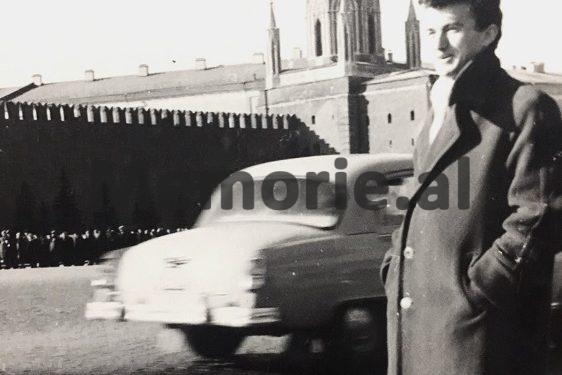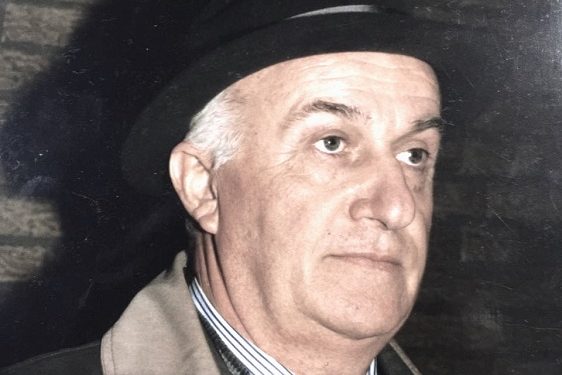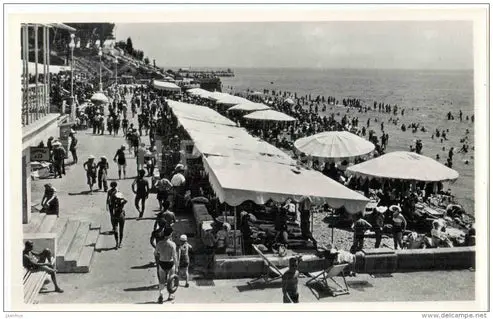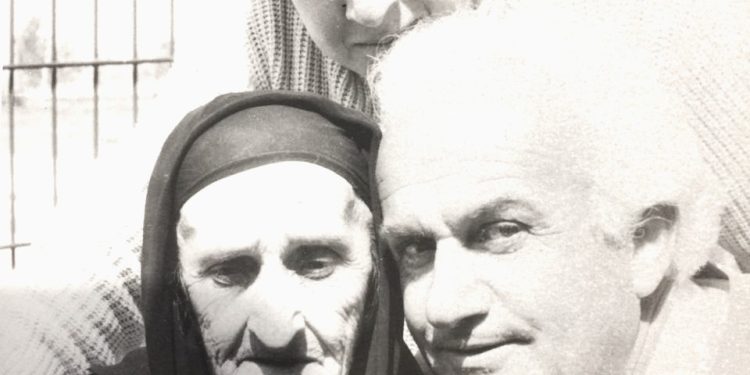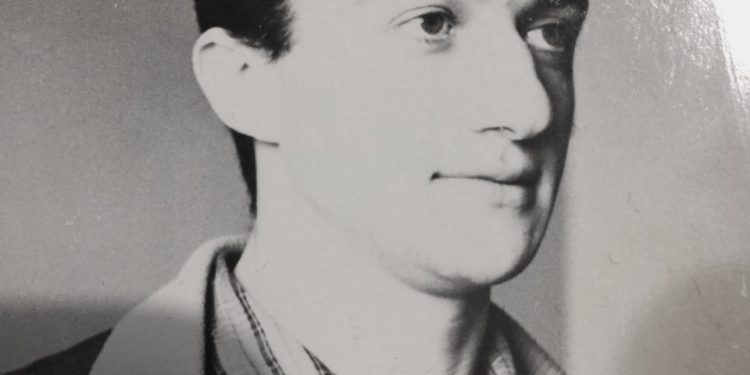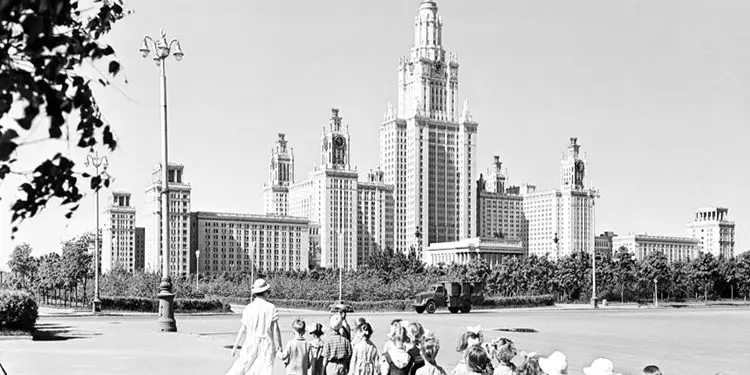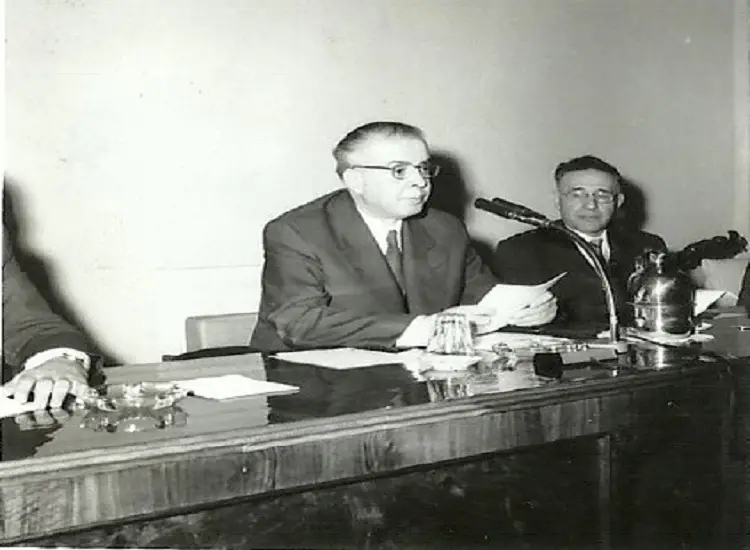From Sokrat Shyti
Part fifteen
Memorie.al / The writer Sokrat Shyti is the “great unknown” who, for several years, has revealed the tip of the iceberg of his literary creativity. I say this based on the limited number of his published books in recent years, primarily the voluminous novel “Nata fantazmë” (Tirana 2014). His novels: “PËRTEJ MISTERIT”, “MES TUNDIMIT DHE VORBULLËS”, “GËRRYERJET E MAKTHIT”, “HIJA E TURPIT DHE E VDEKJES”, “KOLONELI KRYEDHJAK”, “SHPRESAT E NËMURA”, “PËSHTJELLIMET E FATIT” I, II, “MBIJETESA NË KASOLLEN E LOPËS”, as well as other works, all novels ranging from 350 to 550 pages, are in manuscript form waiting to be published. The dreams and initial excitement of the young novelist, returning from studies abroad full of energy and love for art and literature, were cut short early on by the brutal edge of communist dictatorship.
Who is Sokrat Shyti?
Having returned from studies at Moscow State University, right after the rupture of Albanian-Soviet relations in 1960, Sokrat Shyti worked at Radio “Diapazon” (which at that time was located on Kavaja Street), in an editorial office with his journalist friends – Vangjel Lezho and Fadil Kokomani – both later arrested and subsequently executed by the communist regime. Besides the radio, Sokrati, at the age of 21, if we may imagine, had passionate literary interests at that time. He wrote his first novel “Madam doktoresha” and was on the verge of publication, but… alas! Right after the arrest of his friends, to fill the cup, a brother of his, a painter, fled abroad.
Sokrat was arrested in September 1963, and in November of that year, he was sent into internment (together with his mother and younger sister) to a location between Ardenica and Kolonje in Lushnja. For 27 consecutive years, the family lived in a livestock shed made of reeds, without windows, while Sokrat was subjected to forced labor. During these 27 years, he was legally obligated to report three times a day to the regional authority. He had no right to move from the place of internment and was deprived of any kind of documentation, etc. In these conditions, among a livestock shed, he gave birth and raised his children. It was precisely from this event, or rather a very long history of persecution, that he was inspired to write the book “Survival in the Livestock Shed”!
Agron Tufa
Continued from the previous issue
EXCERPT FROM THE BOOK, “SURVIVAL IN THE COW SHED”
After finishing the first academic year with very good results, and since we did not return to Albania for the summer holidays to be with our families, the dean surprised me with an unexpected joy beyond any speculation or imagination: the secretary handed me a vacation slip for the most famous therapeutic city in the Soviet Union, Sochi, on the Black Sea coast, a fantastic city with “three stories,” where high-ranking officials of the Party and the state rested, constructed only with luxurious villas!
To say I was going alone would be an understatement, as I was among the very few Albanians who went on vacation to this fairy-tale place with extremely luxurious conditions (like today’s five-star hotels), with a waiter and a personal doctor, which whenever I recall, seem like a fantasy tale! Because when I woke up and got out of bed in the morning in the two-story villa, “Zallatoj Kollos,” it felt as if I was awakening from a fascinating dream or experiencing a world of wonders, as next to me, the villa’s doctor was present to perform his duties: he measured my blood pressure, the circumference of my chest, checked my breathing, monitored my weight, and determined my daily diet!
After the morning hygiene routine, which included a shower, we went to the dining room together with the doctor, as he was required to be present during meal times to see what percentage of the prescribed diet I consumed. Generally, he was satisfied with the daily regimen’s progress; he did not complain about excessive energy expenditure, except for swimming in the sea, where I exceeded the allocated time, going beyond the set limit and spending less time in the sun. (Even today, I do not know where this bounty of wellbeing came from, as I felt transformed into a blue prince!).
On the third day, at the sports corner of our area, at the tennis court, many curious people had gathered. So I went over to see what was causing this great interest and politely asked two young girls nearby. (They looked at me with a hint of surprise, as if to say: how could you not know that two world-renowned young virtuoso pianists, Russian Ashkenazi and American Van Cliburn, were competing…).
– “We are students at the Moscow Conservatory,” one of them said, with chocolate-colored skin and an average height.
– “So that’s why you are here?”… I added with a smile. “Which of the two players do you personally admire more?” I asked further.
– “I follow the principle: I like the one who plays better,” she replied. “While my friend admires her fiancé…” she emphasized with a bright look.
– “We both seem to have the same principle, as I always support and back the best, because they deserve the credit,” I stated. “I would kindly request you not to take my remark as excessive curiosity, but your friend seems a bit nervous…” I added in a whisper.
– “Is she worried that her fiancé won’t win?”
– “That could be it. But Jews generally have a harsher nature, without the softness of Russian women…” she responded in a whisper. “Would you like to come to the concert of the two virtuosos?” she added with an expectant look.
– “With the greatest pleasure, if I can find a ticket!” I replied.
– “The tickets were sold two weeks before the pianists arrived here. There is a lot of interest in this concert. Consider yourself lucky that we met by chance and that you got to know the close friend of the Russian pianist’s fiancée. So, you will receive a reserve ticket.”
I thanked her for the kindness shown, telling her that she was giving me the greatest privilege, which I could never have dreamed of! “I truly feel lucky that I will participate in the concert of the two world-renowned pianists!” I stated, quite pleased.
She asked me which villa I was staying in so she could send the ticket with the courier. After the match between the two pianists, (where the American won by just two points), we said our goodbyes with the promise that we would see each other at the summer theater, where the concert would be held. My acquaintance with the students from the Conservatory was a stroke of luck for me, not only because I secured the ticket for the grand concert through them, but I also had the opportunity to meet and converse with the two virtuoso pianists during dinner! The days I spent in Sochi were fantastic and fairy-tale-like, a golden month of incredible vacation…
I returned to Moscow with fresh energy and sweet memories! But in the fall, terribly dark clouds appeared, with storms and frightening downpours, as the Conference of the 81 Communist and Workers’ Parties of the Socialist Camp began in Moscow. All Albanian students were engulfed by a gnawing psychological pressure. We received a strict order to have with us in the auditoriums and seminars the newspaper “Zëri i Popullit,” where articles were published daily with monstrous attacks against the Khrushchev leadership, labeling it a traitor to Marxism-Leninism and the Dictatorship of the Proletariat, which was leading the Socialist Camp towards the capitalist abyss.
At the embassy, we were given strict instructions that during the history lessons of the Communist (Bolshevik) Party, we should raise our voices strongly and boldly confront the professors with the “indisputable facts of betrayal,” tearing the devilish mask off the revisionist renegades, Jews, and Jags of the Socialist Camp!
After this order, we were overwhelmed by a terrible state of anxiety and dread that began to accompany us everywhere like a shadow, causing us to become gloomy and wakeful amidst the chilling and shuddering passages of the ideological struggle for life or death! It became quite clear to me that after this terrifyingly fierce confrontation, fierce storms, tempests, and typhoons would sweep across Albania.
Meanwhile, lecturers from the Central Committee of the Labor Party of Albania claimed the exact opposite: they boasted loudly that “Socialist Albania is at directing heights never seen before, thanks to the genius Leader, with courage and foresight, who ripped off the mask and slapped the traitors in the face, and called upon the peoples of the Soviet Union to rise as they did in 1917, to repeat the Socialist Revolution of October with the same grandeur!”
After Enver Hoxha’s speech, our delegation urgently left the Government Residence, specifically designated for them, and settled in the premises of our embassy. Food, drinks, and fruits arrived by plane from Tirana. The panic of a possible assassination grew day by day, taking on increasingly frightening proportions.
Thus, the departure of the delegation from Moscow would be by express train. We were tasked with bringing along as many local curious onlookers as possible, so that the “Kievski Vokzall” railway station would be filled with enthusiastic supporters to bid farewell to “The Great Leader of the Albanian people and his collaborators”! In fact, this send-off was one of the most shameful and grotesque for Albanian students, as active participants in this ostentatious ceremony, as we not only shouted hysterically for Enver Hoxha and the glorious Party of Labor, but we also ran like madmen onto the station platform, chasing after the disrupted wagon that carried our far-sighted Leadership away!…
(Therefore, the Russians, who had long forgotten the grand ovations after Stalin’s death, looked at us with pity and compassion, so degraded that it was almost pathetic!)
It became clear to everyone that after the earthquake of the Conference of the 81 Communist and Workers’ Parties, the state and diplomatic relations between Albania and the Soviet Union would experience a final rupture. Following this moment, the metamorphosis of a crab would begin, where the new Chinese masters would place Socialist People’s Albania into complete isolation and quarantine. As a result of this political quarantine, the country transformed into an island of a thousand intrigues and traps, the fiefdom of the Dictator’s madness, who blindly believed that “the Albanians, as a prehistoric people, are accustomed to eat grass, so they can easily be led by a halter, as long as you stroke their tail and tell them that we will not break under any blackmail!”
Oppressed by this terrifying situation, consciousness remained a hostage to the anxious dilemma determining my future. The faculty’s dean offered me the opportunity and guarantee to continue my studies there, even promising me the desired chance to later pursue my studies at the “Gorky” Institute (since I had an inclination for literature)! For the first time, I was given the golden opportunity to turn my dream into reality, while I was sure that in Albania, facing survival would be extremely difficult, as isolation had begun to eat away at the body of the homeland, and it was unknown what proportions sacrifice and self-denial would take! Certainly, in the midst of the crisis, there was no talk of choosing a field based on my inclinations and abilities.
Such a request was considered a display of petty-bourgeois tendencies. Therefore, before taking this vital step, I mentally asked the soul of my mother whether she would allow me to detach from her sacred love, and whether I would find the strength to face the sin against my brothers and sisters, knowing in advance that they might also suffer devastating consequences from my absence. The temptation of my mother’s love (my father had died when I was in my second year of high school) and remorse for causing punishment to my sisters and brothers compelled me to return, with the explanation that the fates of people and states are predetermined. Therefore, I decided: “It will be done as it is written from above.”
When I returned to Tirana, the situation was terrifyingly miserable! If you compared it with the living standards of Moscow, we were 500 years behind; the metastases of the crisis were met at every step! The Faculty of Natural Sciences, where they enrolled us, the students who returned from abroad, gave the impression that it had emerged from the ashes of an atomic explosion: everything was missing, even water and test tubes!
Lectures were delivered completely dry, without experiments and illustrations! When I listened to the local lecturers (and remembered the distinguished academics with worldwide fame, even Nobel laureates, whose explanations attracted scientists from different parts of the world traveling specifically to hear the latest news and discoveries), the dry lectures without scientific substance from our pedagogues seemed miserable to the point of pain! Viewing the situation from this real perspective, the only possibility to overcome the deep despair was to dedicate myself to literary creation.
But first, I needed to find a way of writing that would prevent me from sinking into the mire of Socialist Realism. Because if I plunged into the swamp of this quagmire, I would remain there and today, I would not be who I am; in fact, I would have blamed myself for following this blind path, entangled in deception. I was sure that my consciousness and character did not fit the literary method of socialist realism. If I forced myself to dedicate to the Party and “Zeus,” accepting the terrifyingly fatal idea that the identity of our nation was created by the Communist Party, with the chilling explanation that without the Party in power, we would be dignified wanderers, humiliated beings, I would hate my soul!
I found my salvation from this deadlock in humor and satire. Why not write a satirical, humorous novel that touches on the delicate issues of the time through subtle psychological and philosophical analyses? Characters began to take shape in my imagination for the novel: the Philosopher, the lawyer, the intellectual, the futurist, the eccentric. And in the background, completely ordinary people: tricksters and scoundrels. In a short time, the essence of the novel “Madam Doktoresha” was conceived in my imagination and was written in one go.
The events unfolded at the beach over several days. Instead of going to the faculty, I took the path to the Great Park of Tirana, holding a thick notebook and a pencil in my hand. I would sit somewhere in the woods and write for hours on end without interruption. Thoughts flowed rapidly, without hindrance. My hand moved quickly over the pages. They filled up with my fine handwriting, one after another.
At home, no one knew what I was up to, so they were completely convinced that I was attending my studies regularly. When I finished the manuscript of the novel, the question arose: to whom should I give it to read? (Or rather: to whom should I pester with my meager writing?). Because no one dares to read a hundred-page manuscript, even if it is a pearl, let alone when the author is an unknown, especially a 21-year-old lad.
Nevertheless, I gathered my courage and went to the Writers’ Union. But since it was my first time, I didn’t know which door to knock on. I hesitated for a few minutes walking down the corridor, not knowing how to act. My attempt seemed both serious and comical. I told myself that I needed to find another solution and was about to leave. On the stairs, I confronted a man of slight build and a drawn face, who asked me in his deep voice:
– “Have you brought something for publication, poetry or prose?”
– “Do you accept handwritten manuscripts?” I replied with a bit of shyness.
– “Collaborators bring typed manuscripts. But from what I see, you have an original manuscript. May I take a look?… Wow, how finely and densely you have written!… Even with a magnifying glass, it is hard to decipher! Do you know how to use a typewriter?”
– “I haven’t had the chance to try it…” I said, blushing.
– “Then we will make a deal right now: in a few days, I will find you a small portable typewriter, and you will type it out yourself in three copies. When you finish, bring me one copy. This way you will learn to use the typewriter, and during the typing, you can make corrections. Agreed?”
He extended his hand to shake and left. I went down the stairs feeling bewildered. I considered our meeting and the acquaintance with the Secretary-General of the Writers’ and Artists’ Union of Albania to be a fortunate chance. Especially, I was impressed by the simplicity and willingness of this slight man to help me.
A week later, I nervously knocked on his door at the Writers’ Union to ask if he had found the typewriter. He pulled out a metal briefcase from his desk drawer, placed it on the surface, opened it, and said:
– “At first glance, it may not catch your eye, as it does not resemble modern typewriters. But it works quite well, can be easily carried in your hands, and you can use it in any environment. Enjoy! We will meet at the ‘Dajti’ bar in a month, on Saturday, after nine in the morning. I hope you will have finished typing out the entire manuscript by then. Until then, good luck and I look forward to seeing you!…” he added, extending his hand to greet me.
I thanked him for keeping his word and for his generosity, tucked the small portable typewriter wrapped in newspaper under my arm, and promised that I would do everything possible to finish typing the manuscript before the deadline.
– “However, on Saturday in a month, I will be at the ‘Dajti’ bar with the typed copy of the novel!” I emphasized, quite pleased. Walking with the portable machine under my arm, it felt as if I was returning from a place where dreamed wishes are experienced, so I felt happy! My mother was surprised when she saw it and asked me concerned: “Where did you find the money to buy it?!” I replied that a friend had lent it to me for a certain time, so I could type some writings.
And to avoid any hassle, I took the typewriter with me wherever I went, to the park, placed it on a cut trunk, and worked continuously until the afternoon. At first, I had difficulty with the dexterity of my fingers and the placement of the letters on the keyboard. Therefore, in the first few days, my productivity was low. But after a while, I got the hang of it, and the rhythm of my work increased. I was quite pleased that I managed to submit the typed manuscript on time! The writer’s eyes sparkled when I placed the volume of the novel on his desk.
– “You deserve an espresso!” he said, smiling. “I believe your fingertips have been trained! It’s a bit more tiring than other machines since you have to turn the roller by hand, but it gets the job done. Then, our next meeting will be exactly in four weeks here, on Saturday, so I’ll note it in the calendar…,” he added as I stood up to leave. Memorie.al
To be continued in the next issue
Copyright©“Memorie.al”
All rights to this material are exclusively and irrevocably owned by “Memorie.al”, in accordance with Law No. 35/2016 “On Author’s Rights and Related Rights”. It is strictly prohibited to copy, publish, distribute, or transfer this material without the authorization of “Memorie.al”; otherwise, any violator will be held liable under Article 179 of Law 35/2016




